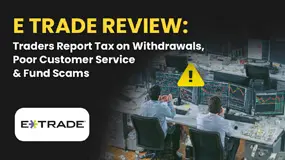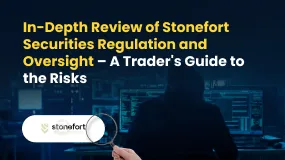简体中文
繁體中文
English
Pусский
日本語
ภาษาไทย
Tiếng Việt
Bahasa Indonesia
Español
हिन्दी
Filippiiniläinen
Français
Deutsch
Português
Türkçe
한국어
العربية
Analysis Methods – Fundamental, Technical and Sentiment Analysis
Abstract:The three generally accepted methods of analyzing the financial markets are: technical, fundamental, and sentimental. Choosing which one to use is a matter of personal preference that develops from study and practice.

Technical analysis is the study of trading activity through the use of patterns, trends, price movement, and volume. Fundamental analysis is the study of price movementto determine the value of an asset. Sentimental analysis is feeling the tone of the market through the study of crowd psychology.
Each of these methods of looking at an assets value has its merits and no one of them is complete on its own. Still, with some types of trading, you will want to rely more heavily on one type of analysis than another in order to better control the risk.
Analysis Tools Defined
Technical analysisdiffers from fundamental and sentimental analysis in that it only takes into account the price and volume of an asset.
The core assumption is that all known fundamentals are factored into price; thus, they become irrelevant and there is no need to pay close attention to them.
The technical trader is not attempting to measure the assets intrinsic value, but rather trying to use technical analysis tools like chart patterns, oscillatorsand trends to determine what an asset will do in the future.
Fundamental analysis relies on macro-and micro-economic factors to determine the long-term and short-term value of an asset. Fundamental analysis looks at the factors that cannot be measured in a price chart. Some of these factors include supply/demand, economic strength, and economic growth.
Sentimental analysis has often been described as “reading the news”. However, it is probably closer to “reading the price action”. This is because something reading the headlines can fool a trader. Therefore, sentimental analysis works better over the short run with technical analysis, but over the long run, fundamental analysis will likely override any short-term sentimental biases.
Trading with sentimental analysis alone can be effective, but you need to be patient when you utilize this method. News does not happen every day for every asset. If you specialize in currencies, for example, you might only be making a couple of trades per week.

Disclaimer:
The views in this article only represent the author's personal views, and do not constitute investment advice on this platform. This platform does not guarantee the accuracy, completeness and timeliness of the information in the article, and will not be liable for any loss caused by the use of or reliance on the information in the article.
Read more

E TRADE Review: Traders Report Tax on Withdrawals, Poor Customer Service & Fund Scams
Has your E Trade forex trading account been charged a withholding tax fee? Did your account get blocked because of multiple deposits? Did you have to constantly call the officials to unblock your account? Failed to open a premium savings account despite submitting multiple documents? Is fund transfer too much of a hassle at E Trade? Did you find the E Trade customer support service not helpful? In this E Trade review article, we have shared certain complaints. Take a look!

mBank Exposed: Top Reasons Why Customers are Giving Thumbs Down to This Bank
Do you find mBank services too slow or unresponsive? Do you find your account getting blocked? Failing to access your account online due to several systemic glitches? Can’t perform the transactions on the mBank app? Do you also witness inappropriate stop-level trade execution by the financial services provider? You are not alone! Frustrated by these unfortunate circumstances, many of its clients have shared negative mBank reviews online. In this article, we have shared some of the reviews. Read on!

In-Depth Uniglobe Markets Commission Fees and Spreads Analysis – What Traders Should Really Know
For experienced traders, the cost of execution is a critical factor in broker selection. Low spreads, fair commissions, and transparent pricing can be the difference between a profitable and a losing strategy over the long term. This has led many to scrutinize the offerings of brokers like Uniglobe Markets, which presents a tiered account structure promising competitive conditions. However, a professional evaluation demands more than a surface-level look at marketing claims. It requires a deep, data-driven analysis of the real trading costs, set against the backdrop of the broker's operational integrity and safety. This comprehensive Uniglobe Markets commission fees and spreads analysis will deconstruct the broker's pricing model, examining its account types, typical spreads, commission policies, and potential ancillary costs. Using data primarily sourced from the global broker inquiry platform WikiFX, we will provide a clear-eyed view of the Uniglobe Markets spreads commissions prici

In-Depth Review of Stonefort Securities Regulation and Oversight – A Trader's Guide to the Risks
For experienced traders, the process of selecting a new broker transcends a simple comparison of spreads and leverage. It is a meticulous due diligence exercise where the integrity of the broker's regulatory framework is paramount. Stonefort Securities, a relatively new entrant in the crowded brokerage space, presents a complex and often contradictory profile. On one hand, it boasts a modern MT5 platform and a stream of positive user testimonials. On the other hand, it is shadowed by severe regulatory warnings that question the very foundation of its operations. This in-depth review focuses on the core issue for any long-term trader: Stonefort Securities regulation and oversight. We will dissect the broker's corporate structure, scrutinize its licensing claims, and analyze what the data implies for trader protection and fund security. For traders evaluating whether Stonefort Securities is a trustworthy partner, understanding these details is not just important—it is essential.
WikiFX Broker
Latest News
In-Depth Uniglobe Markets Commission Fees and Spreads Analysis – What Traders Should Really Know
WikiFX's New Evaluation of ATM Capital LTD: Does its License Protect the Arab Investor?
Is Axi Legit? A Data-Driven Analysis of Its Regulatory Standing and Trader Feedback
How a Fake Moomoo Ad Led to the “New Dream Voyage 5” Scam
FXPesa Review: Are Traders Facing High Slippage, Fund Losses & Withdrawal Denials?
Trive Investigation: High Score, Hidden Risk - The Profit Paradox
Bessent believes there won't be a recession in 2026 but says some sectors are challenged
Is GGCC Legit? A Data-Driven Analysis for Experienced Traders
Young Singaporean Trader Grew USD 52 into a USD 107,700 Portfolio
mBank Exposed: Top Reasons Why Customers are Giving Thumbs Down to This Bank
Currency Calculator



